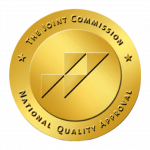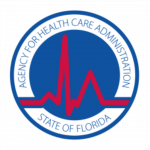Detoxification or drug detox is the process in which harmful abusive substances are released out of the body. This is when the body begins to cleanse properly. Detox plays a vital role in the successful recovery process, and there are different treatment options to assist you on this journey. Whether you or a loved one is experiencing acute or chronic drug use, the safest and most helpful option when deciding to detox is finding professional help.
Most rehabilitation programs that provide detoxification services claim that they can solve the problem within a few days or weeks. Of course, the time frame depends on the person and their condition. It also differs between what substance and the longevity of the abuse. For example, if you are detoxing from alcohol, you may only need a few days in a program.
How Long Does a Detox Program Last?
Different factors determine the length of the Detox process. However, most centers and professionals say it can take days to weeks for the substances to leave the body. The type of substance being abused is the main factor that determines the time frame it will take your body to detoxify. Different substances stay in the body for different periods of time.
However, once you have flushed these substances out of your body, your battle has just begun. Detoxing doesn’t make the cravings and withdrawal symptoms go away. Sadly, this is when many people hit their breaking point and relapse. These symptoms take a big toll on the body and can be as mild as vomiting and diarrhea. On the other hand, these symptoms can be as severe as rapid dehydration and seizures. This is why seeking professional help and not trying to detox without medical assistance is vital.
Overview of the Detox and Withdrawal Period
Heroin/ Opioids
Heroin, along with prescription pain relievers have similar detox timeframes and withdrawal symptoms. The time it takes for these substances to leave the body is a few hours to several days. Within the first 24 hours, you may experience muscle pain, anxiety, runny nose, sweating, and insomnia. These are all symptoms of withdrawal from heroin and opioids. During the first week after detox, it is common to experience diarrhea, nausea, vomiting and this should begin to dissipate after the first week.
Although, with a more severe addiction case, insomnia, irritability, cravings, sweating, anxiety, and depression may last for months after the initial detox.
Alcohol
Withdrawing and detoxing from alcohol can cause serious symptoms that may require emergency medical treatment. The withdrawal symptoms of detoxing from alcohol can last between days, weeks, and sometimes months depending on the severity. In the first 24 hours, you may experience symptoms of anxiety, insomnia, and shaking. In the first week, these symptoms can escalate to fevers, hallucinations, and seizures.
Weeks and months to follow will come with constant cravings until treated with therapy.
Benzodiazepines (Xanax, Valium, Klonopin, etc.)
When detoxing from benzodiazepines, symptoms of withdrawal occur as soon as one day or within the first week. It is in these first two weeks that the individual detoxing from these types of substances will experience the most serious symptoms. This may include anxiety, insomnia, headaches, irritability, nausea, difficulty focusing, heightened blood pressure, and heart palpitations.
After the first two weeks of the initial detox, many experience weight loss and changes in perceptual abilities.
Stimulants (Meth, Cocaine)
Stimulants and amphetamines leave the bloodstream the quickest making the detox period much shorter. Within the first 24 hours, you may experience a “crash,” which causes fatigue, body aches, irritability, and changes in mood. During the first week after detoxing from stimulants, damages from excessive use of this substance can lead to depression and psychotic symptoms.
After the first week, frequent symptoms experienced are lethargy, erratic sleep patterns, cravings, depression, and poor concentration. The most persistent symptom that may continue weeks and months after detox is cravings.
What Comes After Detox?
Many who have gone through their detox treatment have the conception that they are done and cured. In reality, recovery is a long journey that needs to be continuously worked on. Enrolling in extended treatment programs is the next step in the recovery process. These programs are there to help with the management of withdrawal systems and may require medical assistance.
After finishing treatment and getting back into the swing of normal day-to-day, finding groups and support systems are the backbones of your sober journey. Aftercare treatment programs are available to help you deal with the triggers that drove you into substance abuse.
Looking For Treatment Options?
Various alcohol and drug rehabilitation centers provide complete detox treatment services with professionals to help along the way. One of the most prominent examples is the Harm Reduction Center, which is a private Healthcare facility. They offer integrated medication-assisted treatment, coupled with all outpatient levels of care.
The experts at Harm Reduction Centre believe that recovery looks different for everyone. In addition, they strive to provide highly individualized services to their clients and empower and support the recovery process.














